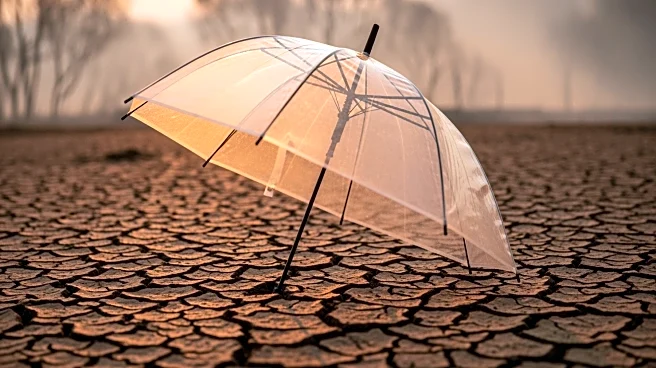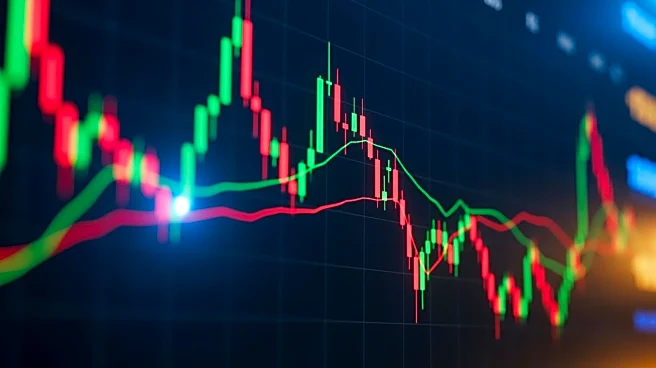What is the story about?
What's Happening?
Researchers are examining the environmental benefits of farmed bivalves such as oysters, mussels, and clams. These bivalves are known for their ability to clean polluted water, and some studies suggest they might also capture carbon dioxide, potentially making them a sustainable food source. Unlike farmed fish, which require wild fish in their diet and contribute to pollution, bivalves are filter feeders that consume nutrients from seawater, helping to reduce nutrient pollution. However, the claim that bivalves capture carbon is contested. A review of over 50 studies by Fabrice Pernet at the University of Brest suggests that while bivalves may sequester carbon in sediments, they are likely net emitters of CO2. Despite this, bivalve farming is considered one of the greenest food production methods, emitting less CO2 than crops like wheat or maize.
Why It's Important?
The potential environmental benefits of farmed bivalves are significant in the context of global food production, which is responsible for a substantial portion of greenhouse gas emissions. As the world seeks sustainable food sources, bivalves offer a promising alternative due to their minimal environmental impact compared to traditional livestock farming. The debate over their carbon capture capabilities highlights the complexity of assessing the true environmental impact of food production. If bivalves can be proven to sequester carbon effectively, they could play a role in carbon credit markets, providing additional economic incentives for sustainable aquaculture practices.
What's Next?
Further research is needed to conclusively determine the carbon capture potential of farmed bivalves. This could involve more comprehensive studies that account for variables such as seasonal changes and the full lifecycle of bivalves. The aquaculture industry may also explore methods to enhance the carbon sequestration capabilities of bivalves, potentially influencing policy and market dynamics. Stakeholders in the seafood industry, environmental groups, and policymakers will likely continue to monitor developments in this area to inform sustainable food production strategies.
Beyond the Headlines
The discussion around farmed bivalves also touches on broader themes of sustainable food systems and the role of aquaculture in mitigating environmental impacts. Ethical considerations regarding the balance between food production and ecosystem preservation are central to this debate. As consumers become more environmentally conscious, the demand for sustainable seafood options like bivalves may increase, influencing market trends and consumer behavior.


















